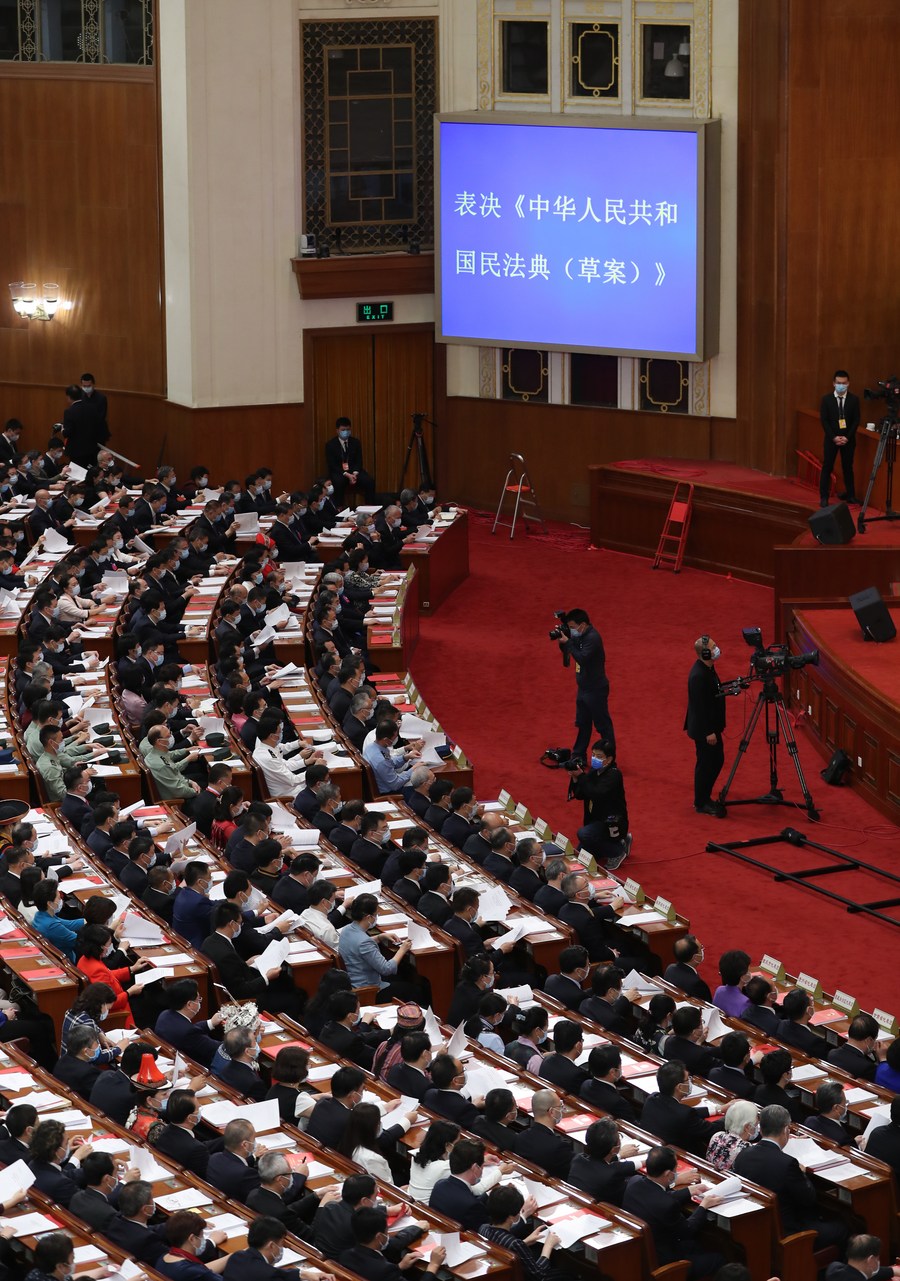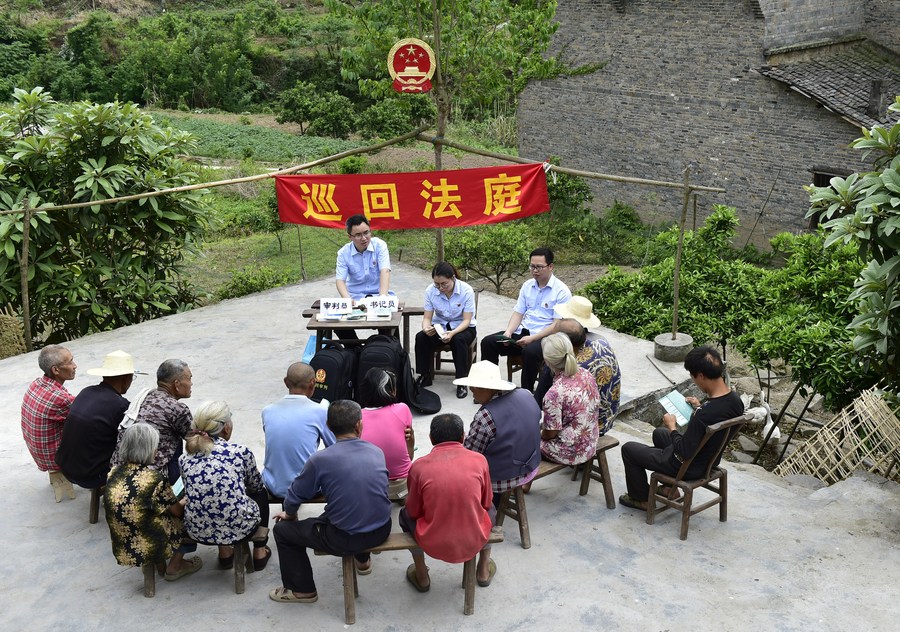A look at China's democracy, rule of law at 'two sessions'
China's "two sessions," the annual sessions of the top legislature and top political advisory body, are a key event on the country's political calendar.
China's "two sessions," the annual sessions of the top legislature and top political advisory body, are a key event on the country's political calendar.
As major issues are being discussed, the event offers outsiders a good chance to see democracy and rule of law at work in the country's political system.
"One of the great misunderstandings is that China is not a democracy," said Mario Cavolo, an Italian-American writer and commentator. But there are many democratic aspects and processes in the Constitution, the laws, and in the way the legislature operates, he added.
WHOLE-PROCESS DEMOCRACY
At this year's session, the National People's Congress (NPC), or the top legislature, is mulling amendments to two laws that concern its organization and working procedures: the Organic Law of the NPC and the Rules of Procedure for the NPC.
Explaining the draft amendments to fellow lawmakers, Wang Chen, vice chairman of the NPC Standing Committee, said amending the two laws is an institutional guarantee for upholding "whole-process democracy."
This means all major legislative decision-making is procedure-based and follows democratic deliberations. Democracy is not complete if people only have the right to vote but not the right to broad participation.
Socialist democracy runs through all processes including elections, decision-making, administration and supervision.
"The whole-process democracy is a hallmark of socialist democracy that distinguishes it from various capitalist democratic systems," Wang said.
Tong Weidong, a legislative official with the NPC Standing Committee, said a fine example of whole-process democracy is the establishment of local legislative outreach offices. Over 1,300 opinions were collected through these offices last year, contributing to 16 pieces of legislation, Tong added.
Cavolo said compared to the West, China is doing a much better job in taking care of the entire society and listening to the people, instead of serving the wealthy class.

Chinese lawmakers vote on the draft civil code at the third session of the 13th National People's Congress in Beijing, capital of China, May 28, 2020. (Xinhua/Ding Haitao)
PEOPLE'S WISDOM IN BLUEPRINT
Democracy is in full swing as China is formulating a blueprint for the country's social and economic development over the next five to 15 years.
The draft outline of the 14th Five-Year Plan (2021-2025) for national economic and social development and the long-range objectives through the year 2035, currently under review at the legislative session, is a good mix of top-level design and people's wisdom.
The National Development and Reform Commission, tasked with drafting the outline, received over 37,000 comments through online solicitation along with more than 4,000 physical questionnaires handed out to specific groups.
A number of symposiums with national lawmakers and political advisors have enabled the commission to collect more than 300 constructive suggestions.
Before the draft outline was put on the table of the legislators and political advisors, the document was also discussed at meetings of the central leadership of the Communist Party of China and the State Council, as well as symposiums and seminars with professionals across the board.
More discussions are ongoing at the "two sessions."
Laurence J. Brahm, a senior international fellow at the Center for China and Globalization, said Chinese democracy is different from that in the West.
"It is a system of consensus-building. It is quiet, and in many ways, like Tai Chi," said Brahm. However, in Western countries a lot of energy is spent on elections and the agendas are influenced by Wall Street and other business interests, he added.
SOCIALIST RULE OF LAW
On Monday, when delivering a work report of the NPC Standing Committee, top legislator Li Zhanshu said efforts must be sped up to improve the Chinese socialist system of laws.
According to the legislative plan unveiled in Li's report, legislative work in key and emerging areas will be strengthened in 2021.
The legislature will move promptly to conduct research on laws and regulations related to new technologies and applications such as those in the areas of the digital economy, internet finance, artificial intelligence, big data, and cloud computing, the report said.
Last year, the NPC adopted the Civil Code, the first law code in the history of the People's Republic of China. This year's report indicates that work should be conducted to formulate codes for "sectors where conditions are ripe."
China aims to develop a system of socialist rule of law with Chinese characteristics, and this system will take shape over the next five years, said Hu Jianmiao, a law professor at the National Academy of Governance.

Staff members of the People's Court of Yunyang County publicizes legal knowledge among villagers in Tuanpu Village in Yunyang County in southwest China's Chongqing, April 12, 2018. (Photo by Rao Guojun/Xinhua)
Such a system upholds fairness and justice.
In the work report of the Supreme People's Court, Chief Justice Zhou Qiang said the work of the top court has centered on the goal of "letting the people feel justice is served in every judicial case."
He also said China emphasizes the protection of human rights while the crimes are punished.
"We work to ensure the innocent are protected and the guilty are prevented from escaping punishment," Zhou said.

